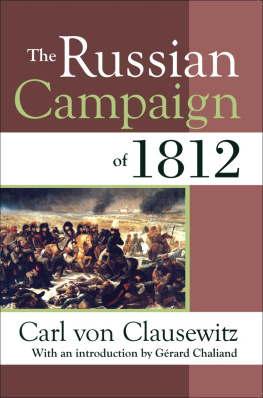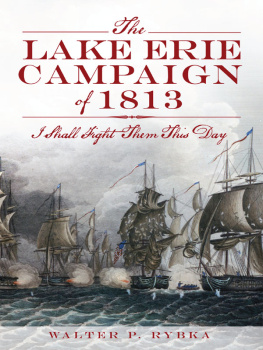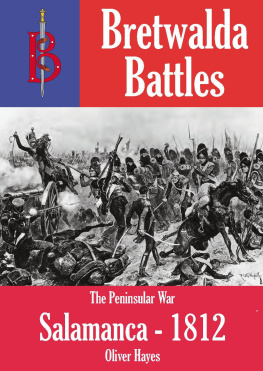1812
Early American Studies
SERIES EDITORS
Daniel K. Richter, Kathleen M. Brown, Max Cavitch, and David Waldstreicher
Exploring neglected aspects of our colonial, revolutionary, and early national history and culture, Early American Studies reinterprets familiar themes and events in fresh ways. Interdisciplinary in character, and with a special emphasis on the period from about 1600 to 1850, the series is published in partnership with the McNeil Center for Early American Studies.
A complete list of books in the series is available from the publisher.
1812

War and the Passions of Patriotism
Nicole Eustace

Copyright 2012 University of Pennsylvania Press
All rights reserved. Except for brief quotations used for purposes of review or scholarly citation, none of this book may be reproduced in any form by any means without written permission from the publisher.
Published by
University of Pennsylvania Press
Philadelphia, Pennsylvania 191044112
www.upenn.edu/pennpress
Printed in the United States of America on acid-free paper
10 9 8 7 6 5 4 3 2 1
Library of Congress Cataloging-in-Publication Data
Eustace, Nicole.
1812 : war and the passions of patriotism / Nicole Eustace. 1st ed.
p. cm. (Early American studies)
Includes bibliographical references and index.
ISBN 978-0-8122-4431-1 (hardcover : alk. paper)
1. United StatesHistoryWar of 1812. 2. PatriotismUnited States
History19th century. 3. EmotionsSocial aspectsUnited States
History19th century. I. Title. II. Title: Eighteen twelve. III. Series: Early
American studies.
E354.E97 2012
973.52dc23
2012004750
For
James Louis Eustace Klancnik,
Alexander Thomas Eustace Klancnik
and
James Michael Klancnik, Jr.

Contents

Preface
Emotion, Persuasion, and the Meaning of War
Chapter 1
Celebrating Love, Liberty, and Progeny
UNITED STATES, CIRCA 1811
Chapter 2
Failures of Feeling as National Disasters
DETROIT, AUGUST 1812
Chapter 3
Romantic Stories of Republican Conquest on the Great Lakes
LAKE ERIE, SEPTEMBER 1813
Chapter 4
Demographic Strategies and the Defeat of Tecumseh
MORAVIANTOWN, CANADA, OCTOBER 1813
Chapter 5
Liberty, Slavery, and the Burning of the Capital
WASHINGTON, D.C., AUGUST 1814
Conclusion
Ardor and Triumph
NEW ORLEANS, JANUARY 1815
Preface

Emotion, Persuasion, and the Meaning of War
When John Blake Whites younger brother James announced that he planned to enlist in the U.S. Army in the spring of 1814, the elder White reacted with dismay. To his journal, he confided his grief and mortification at the news of his brothers plan. It was not that John opposed the war in progress, the British-American dispute now known as the War of 1812. A successful South Carolina lawyer and small-time slaveholder, John was also a patriotic amateur playwright and painter with a flair for taking on artistic projects with nationalist themes. Back when war had first been declared in June 1812, John had exclaimed that the news of the declaration, though Melancholy, had nevertheless inspired the heart of every American with animation and delight. Yet, despite the emotional pleasure he claimed to take in the war, when it came to the possibility of seeing his younger brother take on a combat role, he remonstrated with him and did all in [his] power to demonstrate the impropriety of doing so. The idea of war filled John with agreeable feelings of delight. Current events moved him to many creative flights of fancy. But he remained appalled at the thought that his brother wanted to take an active part in the fighting.
A member of his local militia, John Blake White boasted the rank of captain and turned up to parade with his fellow militia members a couple of times a year. But he never performed any service more demanding than that and the war did nothing to interfere with the pleasant rounds of plays and parties that leavened his workaday world. White preferred to make his national contributions with pen and paintbrush rather than with sword or musket. Throughout the war years, he produced theater pieces and history paintings. He recorded
In the official census of 1810, the United States of America claimed a population of 7.2 million people. Of this number, more than half a million served in the war in some capacity. But the half-million figure is deceptive in that most of those men were militia members who served very brief terms, often contributed services that were more ceremonial than actual, and frequently refused to cross state lines to render assistance any place where it was actually needed. Only about 57,000 men served as regular enlisted soldiers during the war, and of these only 2,260 were killed. By contrast, the best estimates for the Civil War put total enlistments North and South at 2.5 million men out of a population of approximately 31.5 million. And of these soldiers, approximately 617,000 met their deaths. Proportionately, less than half of one percent of all servicemen died during the War of 1812, while a staggering one-fourth of all soldiers died in the Civil War. Statistics like these seem to argue against the historical significance of the War of 1812.
Yet the life of John Blake White suggests that the meaning of the War of 1812 can be found as much in books and broadsides as on battlefields. If we truly wish to assess the impact and importance of the War of 1812, we need to consider it as a cultural event as much as a military one. Like John Blake White, many more people in the United States read and wrote about the War of 1812 than fought in it.

The War of 1812 enjoys the uneasy distinction of being the first war ever to be declared in a modern democracy. Unlike the American Revolution, which developed piecemeal out of the patriot protest movement, and unlike the many quasi wars and campaigns conducted in the first quarter century or so of the new nations history, the War of 1812 was begun by formal constitutional process. James Madison made a detailed case against Great Britain in a June 1 message to members of Congress. They duly responded with a formal statement of hostilities, a bill that Madison quickly signed into law on June 18, 1812. Enormously controversial with members of the Federalist Party from
In strict military and diplomatic terms, the War of 1812 accomplished almost nothing at all. The declared foe was Great Britain and the desired object was Canada. Among a host of complaints against the British, the United States charged that nation with violating its international shipping rights and with impressing its sailors into forced service in the Royal Navy. By the wars end in 1815, after the British had burned Washington, D.C., to the ground and the national debt had nearly tripled, from $45 million to $127 million, all that the United States had managed was to convince the British to return all territorial boundaries and diplomatic disputes to their prewar status. Yet somehow, the population at large regarded the war as a rousing triumph.
Next page







